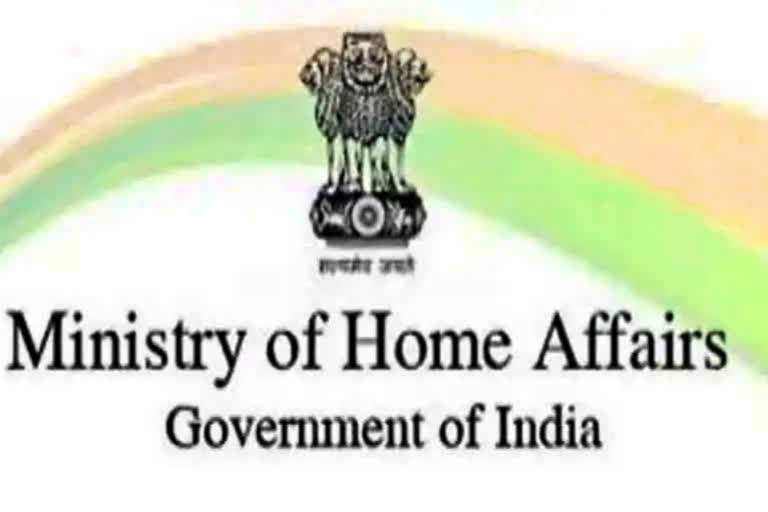New Delhi: An international ministerial conference on how to deal with terror financing, including legitimate and illegitimate funding routes, will be held here next week and it will be attended by ministers of internal security of several countries, officials said. The 3rd 'No Money for Terror Ministerial Conference on Counter-Terrorism Financing on November 18-19 will be hosted by the Ministry of Home Affairs and attended by Union Home Minister Amit Shah among others.
It will discuss diverse subjects like global trends in terrorism and terrorist financing, use of formal and informal channels of funds for terrorism, emerging technologies and terrorist financing and international cooperation to address challenges in combating terrorist financing. The participating nations will also deliberate on how to effectively enforce the standards mandated by the Financial Action Terror Force (FATF) and UN listings on terror group and terrorists, a home ministry official said.
According to a document paper of the conference, the discussion on global trends in terrorism and terrorist financing will cover on trends in terror financing in South Asia, evolving global terrorist threats, potential of global terrorist organisations to expand and recent trends in combating terrorist financing and money laundering risks.
The session on use of formal and informal channels of funds for terrorism will discuss links between legitimate economic activities and terror financing, misuse of non profit organisation (NPOs) and Designated Non-Financial Businesses and Professions (DNFBP) in terror financing, terror financing through Money Transfer Service Scheme (MTSS), 'Hawala' or 'Hundi' networks and other informal means, nexus between terrorists and transnational organised crime, especially drug trafficking in financing of terrorism.
The session on emerging technologies and terrorist financing will discuss the use of virtual assets, crowd funding platforms, payment intermediaries for terrorism financing dark web and terror financing, legislative developments to combat misuse of emerging technologies and public-private partnerships and strengthening private sector commitments.
The discussion on international cooperation to address challenges in combating terrorist financing will cover challenges in investigating crimes of terror financing, cooperation to target radicalisation financing, information sharing among financial intelligence units coordinated response among international law enforcement agencies.
According to the document paper, the session themes include use of formal and informal channels of funds for terrorism. The funding of terrorist activities often requires funds to be moved within or across jurisdictions and this might be done through official channels of the financial system remittances, or through unregulated channels or use of cash couriers, another official said.
The informal system remains a preferred channel for terrorist organisations because of cost effectiveness, efficiency (speed of transfer), reliability, lack of customer identification checks, lack of transaction records and tax evasion. There is similarity between modes of terrorist financing and money laundering, as in both cases, primary efforts are to hide the trail of and storage site of funds from the scrutiny of state authorities, the official said.
Organised crime is also a source of financing and includes illicit trafficking of arms, persons, drugs, artefacts, cultural property, natural resources, and wildlife. The document paper says the global trends in terrorism and terrorist financing will cover threats caused by terrorism and extremism and how they have become more diverse in contemporary decades.
Terrorism in South Asia, today, is exacerbated by extremists and jihadists, claiming political and socio-cultural motivations and seeking legitimacy for their illicit actions,the paper says. Insurgent groups worldwide are engaging in sectarian conflicts -- increasingly based on ethnic-nationalist and sectarian lines.
It is noticed that a substantial number of terrorist attacks continues to be perpetrated by local actors against local targets (state machinery) aimed at achieving local objectives, while there has been a noticeable effort by certain global terrorist organisations to perpetrate transnational attacks in the South Asian region, the paper says.
Challenges experienced in combating terrorist financing can be categorised into challenges at the state and international level. Additional challenges arise in terms of the inclusion and regulation of the private sector as well as extension of technical assistance to smaller financial institutions, the document paper said.
Cooperation among states carried out at the international, national and regional levels needs coordinated responses from intergovernmental and national law enforcement agencies. This is required to bridge the gap between private and public sectors and facilitate better information sharing and cooperation among various stakeholders and, Financial Intelligence Units (FIUs), it said. (PTI)
(This story has not been edited by ETV Bharat and is auto-generated from a syndicated feed.)



